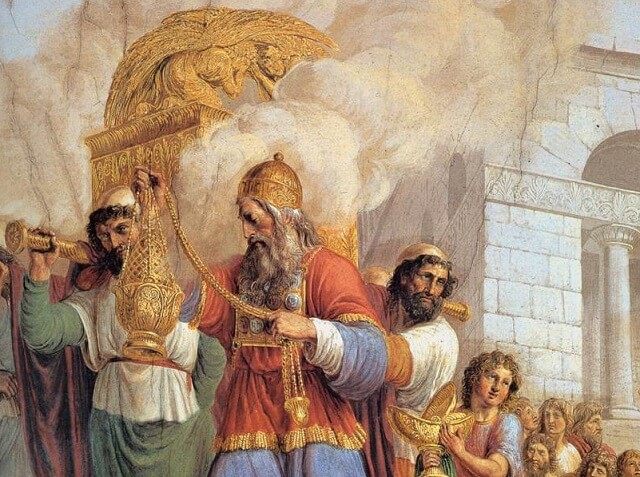
After King David brought the Holy Ark to Jerusalem, he commanded the Levites to play their lyres and harps and sing God’s praises. He instructed them to thank God for His many kindnesses, including the special gift of Eretz Yisrael:
“וַיַּעֲמִידֶהָ לְיַעֲקֹב לְחֹק, לְיִשְׂרָאֵל בְּרִית עוֹלָם. לֵאמֹר, לְךָ אֶתֵּן אֶת אֶרֶץ כְּנָעַן, חֶבֶל נַחֲלַתְכֶם.” (תהילים ק"ה:י-יא)
“[God] established it to Jacob as a statute, an eternal covenant to Israel, saying: To each of you I give the land of Canaan, the portion of your inheritance.” (Psalms 105:10-11; I Chronicles 16:17-18)
The Hebrew text contains a grammatical difficulty not apparent in the translation. The verse opens with God’s promise to give each individual (לְךָ, in the singular) a portion of the Land of Israel. But the verse concludes by referring to the Land of Israel as נַחֲלַתְכֶם, using the plural ‘you’ — your collective inheritance.
Why this switch from singular to plural?
Two Connections
Rav Kook explained that we connect to the Land of Israel on two levels. Our first connection is through the ties that connect the Jewish people as a whole to the Land of Israel. This is an eternal bond for all generations.
But there exists an additional layer: the special connection between each individual Jew and the Land of Israel. There is a distinct match between each individual — according to his or her unique talents and soul-qualities — and Eretz Yisrael. This is our special portion in the Land.
In a 1906 letter, Rav Kook discussed the nature of this personal connection to Eretz Yisrael. The special distinction of Jerusalem, the great mitzvah to live there and develop the city, is well known. But if this is the case, why do we find lofty tzaddikim who chose to live in other cities in Israel? Why don’t they all make their home in Jerusalem?
Rav Kook answered that every location in Israel has its own unique holiness. As an example, Rav Kook noted some of the special spiritual qualities of Jaffa (where he then served as chief rabbi): the place where the prophet Jonah visited, and its role in the construction of Solomon’s Temple.
“Jerusalem is highly cherished, its holiness is an overall holiness, and its settlement takes precedence [over other places in the Land of Israel]. Nevertheless, each tzaddik perceived in his distinct inner soul that he belongs to the particular holiness associated with a certain location; so he established his residence there.”
Rav Kook added that this was certainly true for the various tribes of Israel. Each tribe was prophetically assigned an area in Eretz Yisrael that corresponded to its own unique spiritual qualities.
Of course, our special ties to the Land of Israel do not have to be expressed geographically. We may find our connection to Eretz Yisrael in a particular sphere of occupation, building up the Land in some material or spiritual fashion.
Specific Connection and Eternal Ties
This is the meaning of David’s command. The verse starts with the individual level: “to each of you I give the Land.” It then adds the national level: “the portion of your [collective] inheritance.” Our bonds to the Land of Israel include our own personal connection to the Land as well as the nation’s eternal ties.
This double connection is also reflected in the phrase חֶבֶל נַחֲלַתְכֶם, “the portion of your inheritance.” This phrase appears to be self-contradictory, for chevel means a set, measured area of land, while the word nachalah indicates an eternal inheritance for all times. Is our inheritance both measured and boundless?
In fact, our ties to Eretz Yisrael encompass both aspects. We have a specific portion in the Land, our chevel, according to our unique soul-qualities. And we share eternal binds to the Land, our nachalah, as members of the Jewish people, party to God’s “eternal covenant with Israel.”
(Adapted from Olat Re’iyah vol. I, p. 203; Igrot HaRe’iyah vol. I, p. 35)
Illustration image: ‘Transportation of the Ark of the Covenant’ (Luigi Ademollo, 1816)





